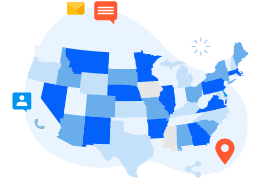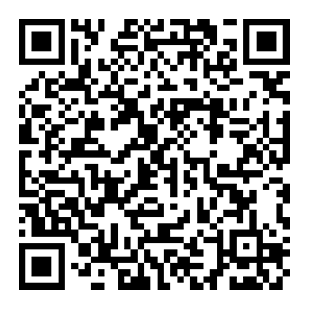2016年奥巴马霍华德大学的毕业英文演讲稿
2016年奥巴马霍华德大学的毕业英文演讲稿
Thank you! Hello, Howard! H-U!
OBAMA: H-U!
OBAMA:Thank you so much, everybody. Please, please, have a seat. Oh, I feel important now. Got a degree from Howard. Cicely Tyson said something nice about me.
AUDIENCE MEMBER: I love you, President!
OBAMA: I love you back.
To President Frederick, the Board of Trustees, faculty and staff, fellow recipients of honorary degrees, thank you for the honor of spending this day with you. And congratulations to the Class of 2016! Four years ago, back when you were just freshmen, I understand many of you came by my house the night I was reelected. So I decided to return the favor and come by yours.
To the parents, the grandparents, aunts, uncles, brothers, sisters, all the family and friends who stood by this class, cheered them on, helped them get here today — this is your day, as well. Let’s give them a big round of applause, as well.
I’m not trying to stir up any rivalries here; I just want to see who’s in the house. We got Quad? Annex. Drew. Carver. Slow. Towers. And Meridian. Rest in peace, Meridian. Rest in peace.
I know you’re all excited today. You might be a little tired, as well. Some of you were up all night making sure your credits were in order. Some of you stayed up too late, ended up at HoChi at 2:00 a.m. Got some mambo sauce on your fingers.
But you got here. And you've all worked hard to reach this day. You’ve shuttled between challenging classes and Greek life. You've led clubs, played an instrument or a sport. You volunteered, you interned. You held down one, two, maybe three jobs. You've made lifelong friends and discovered exactly what you’re made of. The “Howard Hustle” has strengthened your sense of purpose and ambition.
Which means you're part of a long line of Howard graduates. Some are on this stage today. Some are in the audience. That spirit of achievement and special responsibility has defined this campus ever since the Freedman’s Bureau established Howard just four years after the Emancipation Proclamation; just two years after the Civil War came to an end. They created this university with a vision — a vision of uplift; a vision for an America where our fates would be determined not by our race, gender, religion or creed, but where we would be free — in every sense — to pursue our individual and collective dreams.
It is that spirit that's made Howard a centerpiece of African-American intellectual life and a central part of our larger American story. This institution has been the home of many firsts: The first black Nobel Peace Prize winner. The first black Supreme Court justice. But its mission has been to ensure those firsts were not the last. Countless scholars, professionals, artists, and leaders from every field received their training here. The generations of men and women who walked through this yard helped reform our government, cure disease, grow a black middle class, advance civil rights, shape our culture. The seeds of change — for all Americans — were sown here. And that’s what I want to talk about today.
As I was preparing these remarks, I realized that when I was first elected President, most of you — the Class of 2016 — were just starting high school. Today, you’re graduating college. I used to joke about being old. Now I realize I'm old. It's not a joke anymore.
But seeing all of you here gives me some perspective. It makes me reflect on the changes that I’ve seen over my own lifetime. So let me begin with what may sound like a controversial statement — a hot take.
Given the current state of our political rhetoric and debate, let me say something that may be controversial, and that is this: America is a better place today than it was when I graduated from college. Let me repeat: America is by almost every measure better than it was when I graduated from college. It also happens to be better off than when I took office — but that's a longer story.That's a different discussion for another speech.
But think about it. I graduated in 1983. New York City, America’s largest city, where I lived at the time, had endured a decade marked by crime and deterioration and near bankruptcy. And many cities were in similar shape. Our nation had gone through years of economic stagnation, the stranglehold of foreign oil, a recession where unemployment nearly scraped 11 percent. The auto industry was getting its clock cleaned by foreign competition. And don’t even get me started on the clothes and the hairstyles. I've tried to eliminate all photos of me from this period. I thought I looked good. I was wrong.
Since that year — since the year I graduated — the poverty rate is down. Americans with college degrees, that rate is up. Crime rates are down. America’s cities have undergone a renaissance. There are more women in the workforce. They’re earning more money. We’ve cut teen pregnancy in half. We've slashed the African American dropout rate by almost 60 percent, and all of you have a computer in your pocket that gives you the world at the touch of a button. In 1983, I was part of fewer than 10 percent of African Americans who graduated with a bachelor’s degree. Today, you’re part of the more than 20 percent who will. And more than half of blacks say we’re better off than our parents were at our age — and that our kids will be better off, too.
So America is better. And the world is better, too. A wall came down in Berlin. An Iron Curtain was torn asunder. The obscenity of apartheid came to an end. A young generation in Belfast and London have grown up without ever having to think about IRA bombings. In just the past 16 years, we’ve come from a world without marriage equality to one where it’s a reality in nearly two dozen countries. Around the world, more people live in democracies. We’ve lifted more than 1 billion people from extreme poverty. We’ve cut the child mortality rate worldwide by more than half.
America is better. The world is better. And stay with me now — race relations are better since I graduated. That’s the truth. No, my election did not create a post-racial society. I don’t know who was propagating that notion. That was not mine. But the election itself — and the subsequent one — because the first one, folks might have made a mistake. The second one, they knew what they were getting. The election itself was just one indicator of how attitudes had changed.
In my inaugural address, I remarked that just 60 years earlier, my father might not have been served in a D.C. restaurant — at least not certain of them. There were no black CEOs of Fortune 500 companies. Very few black judges. Shoot, as Larry Wilmore pointed out last week, a lot of folks didn’t even think blacks had the tools to be a quarterback. Today, former Bull Michael Jordan isn’t just the greatest basketbal
l player of all time — he owns the team. When I was graduating, the main black hero on TV was Mr. T. Rap and hip hop were counterculture, underground. Now, Shonda Rhimes owns Thursday night, and Beyoncé runs the world. We’re no longer only entertainers, we're producers, studio executives. No longer small business owners — we're CEOs, we’re mayors, representatives, Presidents of the United States.
I am not saying gaps do not persist. Obviously, they do. Racism persists. Inequality persists. Don’t worry — I’m going to get to that. But I wanted to start, Class of 2016, by opening your eyes to the moment that you are in. If you had to choose one moment in history in which you could be born, and you didn’t know ahead of time who you were going to be — what nationality, what gender, what race, whether you’d be rich or poor, gay or straight, what faith you'd be born into — you wouldn’t choose 100 years ago. You wouldn’t choose the fifties, or the sixties, or the seventies. You’d choose right now. If you had to choose a time to be, in the words of Lorraine Hansberry, “young, gifted, and black” in America, you would choose right now.
I tell you all this because it's important to note progress. Because to deny how far we’ve come would do a disservice to the cause of justice, to the legions of foot soldiers; to not only the incredibly accomplished individuals who have already been mentioned, but your mothers and your dads, and grandparents and great grandparents, who marched and toiled and suffered and overcame to make this day possible. I tell you this not to lull you into complacency, but to spur you into action — because there’s still so much more work to do, so many more miles to travel. And America needs you to gladly, happily take up that work. You all have some work to do. So enjoy the party, because you're going to be busy.
Yes, our economy has recovered from crisis stronger than almost any other in the world. But there are folks of all races who are still hurting — who still can’t find work that pays enough to keep the lights on, who still can’t save for retirement. We’ve still got a big racial gap in economic opportunity. The overall unemployment rate is 5 percent, but the black unemployment rate is almost nine. We’ve still got an achievement gap when black boys and girls graduate high school and college at lower rates than white boys and white girls. Harriet Tubman may be going on the twenty, but we’ve still got a gender gap when a black woman working full-time still earns just 66 percent of what a white man gets paid.
We’ve got a justice gap when too many black boys and girls pass through a pipeline from underfunded schools to overcrowded jails. This is one area where things have gotten worse. When I was in college, about half a million people in America were behind bars. Today, there are about 2.2 million. Black men are about six times likelier to be in prison right now than white men.
Around the world, we’ve still got challenges to solve that threaten everybody in the 21st century — old scourges like disease and conflict, but also new challenges, from terrorism and climate change.
So make no mistake, Class of 2016 — you’ve got plenty of work to do. But as complicated and sometimes intractable as these challenges may seem, the truth is that your generation is better positioned than any before you to meet those challenges, to flip the script.
Now, how you do that, how you meet these challenges, how you bring about change will ultimately be up to you. My generation, like all generations, is too confined by our own experience, too invested in our own biases, too stuck in our ways to provide much of the new thinking that will be required. But us old-heads have learned a few things that might be useful in your journey. So with the rest of my time, I’d like to offer some suggestions for how young leaders like you can fulfill your destiny and shape our collective future — bend it in the direction of justice and equality and freedom.
First of all — and this should not be a problem for this group — be confident in your heritage. Be confident in your blackness. One of the great changes that’s occurred in our country since I was your age is the realization there's no one way to be black. Take it from somebody who’s seen both sides of debate about whether I'm black enough. In the past couple months, I’ve had lunch with the Queen of England and hosted Kendrick Lamar in the Oval Office. There’s no straitjacket, there's no constraints, there's no litmus test for authenticity.
Look at Howard. One thing most folks don’t know about Howard is how diverse it is. When you arrived here, some of you were like, oh, they've got black people in Iowa? But it’s true — this class comes from big cities and rural communities, and some of you crossed oceans to study here. You shatter stereotypes. Some of you come from a long line of Bison. Some of you are the first in your family to graduate from college. You all talk different, you all dress different. You’re Lakers fans, Celtics fans, maybe even some hockey fans.
And because of those who've come before you, you have models to follow. You can work for a company, or start your own. You can go into politics, or run an organization that holds politicians accountable. You can write a book that wins the National Book Award, or you can write the new run of “Black Panther.” Or, like one of your alumni, Ta-Nehisi Coates, you can go ahead and just do both. You can create your own style, set your own standard of beauty, embrace your own sexuality. Think about an icon we just lost — Prince. He blew up categories. People didn’t know what Prince was doing. And folks loved him for it.
You need to have the same confidence. Or as my daughters tell me all the time, “You be you, Daddy.” Sometimes Sasha puts a variation on it — "You do you, Daddy." And because you’re a black person doing whatever it is that you're doing, that makes it a black thing. Feel confident.
Second, even as we each embrace our own beautiful, unique, and valid versions of our blackness, remember the tie that does bind us as African Americans — and that is our particular awareness of injustice and unfairness and struggle. That means we cannot sleepwalk through life. We cannot be ignorant of history.We can’t meet the world with a sense of entitlement. We can’t walk by a homeless man without asking why a society as wealthy as ours allows that state of affairs to occur. We can’t just lock up a low-level dealer without asking why this boy, barely out of childhood, felt he had no other options. We have cousins and uncles and brothers and sisters who we remember were just as smart and just as talented as we were, but somehow got ground down by structures that are unfair and unjust.
And that means we have to not only question the world as it is, and stand up for those African Americans who haven’t been so lucky — because, yes, you've worked hard, but you've also been lucky. That's a pet peeve of mine: People who have been successful and don’t realize they've been lucky. That God may have blessed them; it wasn’t nothing you did. So don’t have an attitude. But we must expand our moral imaginations to understand and empathize with all people who are struggling, not just black folks who are struggling — the refugee, the
immigrant, the rural poor, the transgender person, and yes, the middle-aged white guy who you may think has all the advantages, but over the last several decades has seen his world upended by economic and cultural and technological change, and feels powerless to stop it. You got to get in his head, too.
Number three: You have to go through life with more than just passion for change; you need a strategy. I'll repeat that. I want you to have passion, but you have to have a strategy. Not just awareness, but action. Not just hashtags, but votes.
You see, change requires more than righteous anger. It requires a program, and it requires organizing. At the 1964 Democratic Convention, Fannie Lou Hamer — all five-feet-four-inches tall — gave a fiery speech on the national stage. But then she went back home to Mississippi and organized cotton pickers. And she didn't have the tools and technology where you can whip up a movement in minutes. She had to go door to door. And I’m so proud of the new guard of black civil rights leaders who understand this. It’s thanks in large part to the activism of young people like many of you, from Black Twitter to Black Lives Matter, that America’s eyes have been opened — white, black, Democrat, Republican — to the real problems, for example, in our criminal justice system.
But to bring about structural change, lasting change, awareness is not enough. It requires changes in law, changes in custom. If you care about mass incarceration, let me ask you: How are you pressuring members of Congress to pass the criminal justice reform bill now pending before them? If you care about better policing, do you know who your district attorney is? Do you know who your state’s attorney general is? Do you know the difference? Do you know who appoints the police chief and who writes the police training manual? Find out who they are, what their responsibilities are. Mobilize the community, present them with a plan, work with them to bring about change, hold them accountable if they do not deliver. Passion is vital, but you've got to have a strategy.
And your plan better include voting — not just some of the time, but all the time. It is absolutely true that 50 years after the Voting Rights Act, there are still too many barriers in this country to vote. There are too many people trying to erect new barriers to voting. This is the only advanced democracy on Earth that goes out of its way to make it difficult for people to vote. And there's a reason for that. There's a legacy to that.
But let me say this: Even if we dismantled every barrier to voting, that alone would not change the fact that America has some of the lowest voting rates in the free world. In 2014, only 36 percent of Americans turned out to vote in the midterms — the secondlowest participation rate on record. Youth turnout — that would be you — was less than 20 percent. Less than 20 percent. Four out of five did not vote. In 2012, nearly two in three African Americans turned out. And then, in 2014, only two in five turned out. You don’t think that made a difference in terms of the Congress I've got to deal with? And then people are wondering, well, how come Obama hasn’t gotten this done? How come he didn’t get that done? You don’t think that made a difference? What would have happened if you had turned out at 50, 60, 70 percent, all across this country? People try to make this political thing really complicated. Like, what kind of reforms do we need? And how do we need to do that? You know what, just vote. It's math. If you have more votes than the other guy, you get to do what you want.It's not that complicated.
And you don’t have excuses. You don’t have to guess the number of jellybeans in a jar or bubbles on a bar of soap to register to vote. You don’t have to risk your life to cast a ballot. Other people already did that for you.Your grandparents, your great grandparents might be here today if they were working on it. What's your excuse? When we don’t vote, we give away our power, disenfranchise ourselves — right when we need to use the power that we have; right when we need your power to stop others from taking away the vote and rights of those more vulnerable than you are — the elderly and the poor, the formerly incarcerated trying to earn their second chance.
So you got to vote all the time, not just when it’s cool, not just when it's time to elect a President, not just when you’re inspired. It's your duty. When it’s time to elect a member of Congress or a city councilman, or a school board member, or a sheriff. That’s how we change our politics — by electing people at every level who are representative of and accountable to us. It is not that complicated. Don’t make it complicated.
◆ ◆ ◆
投稿&商务合作请加微信 speechclub2016
精彩英语演讲一个专注英语演讲的公众号
点击阅读原文查看更多精彩英语演讲!
版权声明:以上内容为用户推荐收藏至Dreamgo网站,其内容(含文字、图片、视频、音频等)及知识版权均属用户或用户转发自的第三方网站,如涉嫌侵权,请通知copyright@dreamgo.com进行信息删除。如需查看信息来源,请点击“查看原文”。如需洽谈其它事宜,请联系info@dreamgo.com








